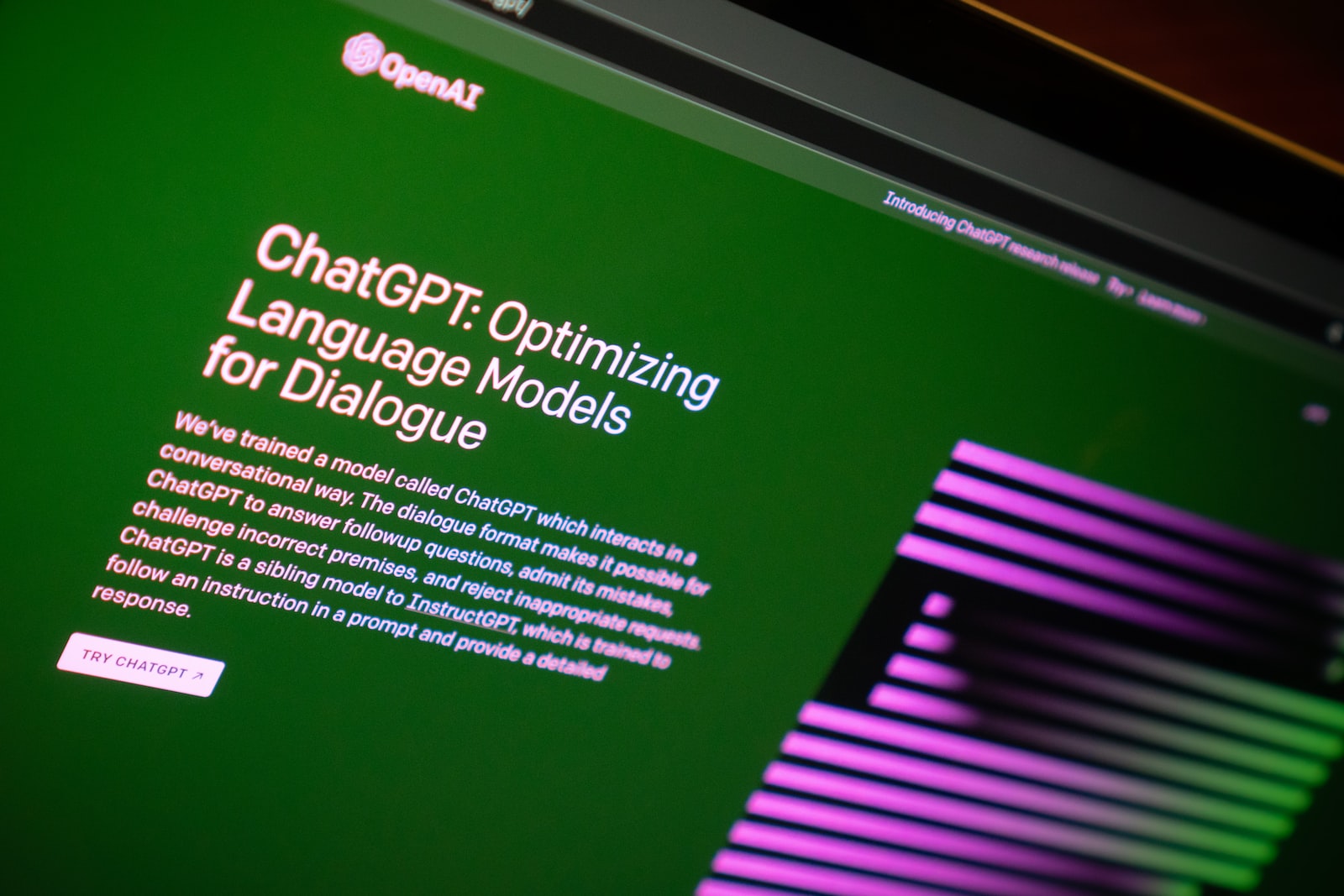
Predicting ‘what’s the next big thing’ seems to be a yearly tradition in the advertising world.
Take a look at any predictions or trends report from the last five years and you’ll be sure to find someone telling you that the ‘metaverse’, ‘augmented reality’ or ‘virtual reality’ is going mainstream.
In reality, a lot of this technology remains some way off major adoption (and even further off taking your job) but one thing that has caught everyone’s attention over the past couple of months is ChatGPT.
What is it?
Built by OpenAI, ChatGPT has exploded since its launch in November, so much so that 30% of men in one survey said they had planned to use ChatGPT or a similar AI tool to pen a love letter for Valentine’s day earlier this month. Who said romance was dead?
The technology behind ChatGPT is complex but in a nutshell it is a ‘large language model’ chatbot that can interpret long form questions and answer them conversationally.
The software is trained to learn what humans mean when they ask a question and uses massive amounts of data to understand what comes next in a sentence, ultimately allowing it to write paragraphs and even pages of content in a matter of seconds.
Search, disrupted
Whilst the ability to write novelty poems for your colleagues, songs for your other half and even pass some Uni exams has turned it into an internet phenomenon this year, many commentators believe the ultimate goal of chatbots like ChatGPT is to challenge the likes of Google and become the next generation of search engine.
Unsurprisingly, Google isn’t sitting back and watching how it pans out. Google has announced their own chatbot called Bard, powered by their own conversational language tool.
Publishers are also looking into how they can use AI to create content – one example being Buzzfeed who are planning on using AI to personalise their online quizzes and content.
Another big implication for publishers could be the move away from SEO driven content into personal stories and personal takes. Unlike Google which drives search queries to a landing page, chatbots have the potential to answer a search query without users needing to click through to a landing page. For publishers which rely on high volumes of traffic coming via search this could have huge consequences and has already prompted some publishers to announce their focus will be on visual content, shared experiences and content that shows writers’ own taste, expertise and point of view.
Unreliable robo-writer
Despite one study finding two thirds of people unable to distinguish between a love letter written by AI vs humans, another limitation of AI in its current guise is the lack of ability to inject personality and humour into content.
Perhaps one the best examples of this is illustrated by an article in The Sun recently. Using ChatGPT, the Sun rewrote some of its most iconic headlines.
‘How do you solve a problem like Korea?’ suddenly became ‘North Korean dictator threatens the world’ whilst the death of Bin Laden went from ‘Bin Bagged’ to the more factual ‘Bin Laden Dead: World Reacts with Relief’.
Perhaps more alarmingly than its lack of ability for irreverent humour are accusations of the chatbot sending unhinged messages to users, even going so far as to insult them and question its own existence.
No replacement
Overall, the potential for AI and chatbots like ChatGPT is vast.
It is likely that we will continue to see significant advancements in this field in the coming years.
However, it is important to recognize that AI is not a replacement for human creativity and emotional intelligence, and it should be used to augment and support human efforts, rather than to replace them entirely.